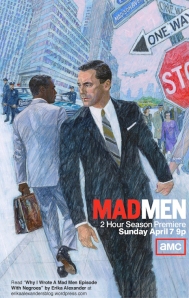Q: If writers who don’t read are a plague, what are writers who don’t practice the craft of writing? A: The zombie apocalypse, ese.
Lots of people claim to be writers who are not, and we read them every day, watch their unwatchable movies. As I’ve said in this space, the world is way too full of “writers” who don’t read and their clumsy books and awkward scripts. Slouching next to them in the Creative Hall Of Shame, overlapping them in the great Venn diagram of awful are the “writers” who don’t write, who don’t practice this craft. These are the zombies of the written word, not dead, but not truly alive.
These zombies don’t have the self respect to do the work, the 90% of the iceberg that doesn’t show above the surface. And lord do they stink up the joint.
And thanks to the cultural democracy of the internet (I’m a writer! Everyone’s a writer!) they are everywhere with us, these zombies with laptops. You see them staggering through the business, going though the motions, making that horrible clack-clacking zombie racket, cranking out blogs and “novels” and “YA” and “scripts” by the millions, threatening us all with their jive insights, garbled syntax and slack prose. Arr-arrr-clack-clack, arr-arr.r.
Writing is a creative pursuit, of course, and many who take it up mystify it, talk about it in terms of “inspiration”. Amateurs. After writing for a living for more than 25 years, I see it as a job of work, a job that must be respected and practiced daily.
The single great truth about this writing life: Real writers write every day. Punto. And real writing? Kills zombies, swear to god.
I wrote a picture once for Oliver Stone, and it was a fascinating lesson to a younger writer. He’s directed a slew of hard-hitting pictures and won three Oscars, but that’s not the thing he’s proudest of. Picture an average script sitting on a shelf. It’s about half an inch thick, right? The thing Oliver Stone is proudest of, I know, is in his office. It’s the wall of screenplays, let me repeat that, the WALL OF SCREENPLAYS and drafts of screenplays he has personally written. Say what you want about “Conan The Barbarian”, there are twenty drafts of that script on Oliver’s shelf to attest to the fact that what’s in the final draft is the best version he could do.
Oliver Stone is a journeyman writer of the highest order, and the only advice he ever gave me was “keep your ass in the chair”. If you visit him today, I guarantee you’ll find him in his chair, at his computer, killin’ zombies, man.
Real writers write as a habit, as a practice, as a job (paid or not), because they know that when and if that elusive “inspiration” ever strikes, without practice you won’t have the first clue what to do with it. With practice? You’ll feel like a golden god.
Two examples from sport: Michael Jordan, an artist on the court, inspired and preternaturally gifted as he was, put in more practice time at the foul line, ran more defensive drills than anyone in the game. Lance Armstrong, a cyclist of genius, simply spent more hours in the saddle than any of his competitors. These guys respected their natural gifts and “inspiration” by putting in the hours at their jobs.
No doubt you’ve lately heard this meme dressed up as Malcolm Gladwell’s “10,000 Hour Rule” as expressed in his book Outliers: The Story of Success. Citing early 90s research by K. Anders Ericsson, Gladwell reports, “The closer psychologists look at the careers of the gifted, the smaller the role innate talent seems to play and the bigger the role preparation seems to play.”
“The thing that distinguishes one performer from another” Gladwell continues, “is how hard he or she works. That’s it. And what’s more, the people at the very top don’t work just harder or even much harder than everyone else. They work much, much harder.”
There’s no mystifying hard work; there’s no secret to it. Almost anyone can do it. That’s pretty democratic, no?
A caveat: This gospel of hard work I’m preaching is not a guarantee. You may work hard and die in obscurity, your words known to no one. Other, less-hard-working, zombie-ass “writers” may be celebrated to your dismay. What I’m offering here is a sort of reverse guarantee: Don’t work hard and you may be sure your writing will deserve obscurity.
To bring it downtown, let me quote a well-known 20th century zombie-killer: “I write one page of masterpiece to ninety-one pages of shit,” Ernest Hemingway confided to F. Scott Fitzgerald in 1934. “I try to put the shit in the wastebasket.”
Hemingway’s writing life stretched from 1926, with the publication of The Sun Also Rises to 1952 with The Old Man And The Sea. In 1954 Hemingway was awarded the Nobel Prize In Literature. That had to be a pretty big wastebasket.

I had a drink or five with this fine statue of a man in the Floridita bar in Havana, Cuba, but it didn't necessarily make me any better as a writer.
In addition to his recent work in comics, Tony Puryear has been writing pictures for over 25 years. He has written screenplays for Mel Gibson, Oliver stone, Jerry Bruckheimer and Will Smith. His original script, Eraser, became the 1996 Arnold Schwarzenegger blockbuster. His latest script is an adaptation of the 1949 Joan Crawford thriller Sudden Fear for RKO Pictures.



